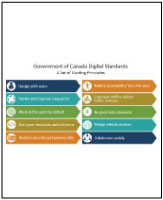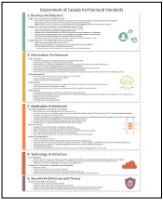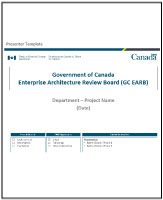Important: The GCConnex decommission will not affect GCCollab or GCWiki. Thank you and happy collaborating!
Difference between revisions of "Coordinated Governance Model"
| Line 15: | Line 15: | ||
· Maximize deployment options / clustering by reducing the number of SAP instances within the GC. This approach should significantly reduce the investments and the on-going operating costs, moving forward. | · Maximize deployment options / clustering by reducing the number of SAP instances within the GC. This approach should significantly reduce the investments and the on-going operating costs, moving forward. | ||
| + | |||
| + | |||
| + | <b> In summary and in practical terms, the proposed strategy suggests that we: </b> | ||
| + | |||
| + | · In partnership with OGDs, standardize approximately 70% of our financial processes (paying a bill is paying a bill…) across the GC and let Departments “customize” 30% to meet their specific needs. | ||
| + | |||
| + | · Encourage / enable the “clustering” concept across GC; preliminary assessments suggest going from 18 instances to 11. | ||
Revision as of 09:50, 16 December 2020
On April 9th, 2020, the GC Coordinated model & GC Digital Core template strategy was endorsed by GCEARB which included the following components:
· Implementation of a “GC Coordinated Model” to enable the GC-wide transition to S/4 HANA and to deliver financial management transformation, utilizing a new operating and governance model.
· Implementation of a “GC Digital Core” to support the transformation, which would have functionality built once, and used everywhere. This will accelerate implementations, avoid duplicative costs, and reduce the risk in transition to S/4 HANA.
· Maximize technical architecture.
· Maximize deployment options / clustering by reducing the number of SAP instances within the GC. This approach should significantly reduce the investments and the on-going operating costs, moving forward.
In summary and in practical terms, the proposed strategy suggests that we:
· In partnership with OGDs, standardize approximately 70% of our financial processes (paying a bill is paying a bill…) across the GC and let Departments “customize” 30% to meet their specific needs.
· Encourage / enable the “clustering” concept across GC; preliminary assessments suggest going from 18 instances to 11.
Reference Materials[edit | edit source]
|
Link to the TBS policy that describes the mandate for GC EARB and outlines the related responsibilities for Departmental CIOs.
|
Business Capability Model (BCM) (right) The Government of Canada's Digital Standards form the foundation of the government's shift to becoming more agile, open, and user-focused. They will guide teams in designing digital services in a way that best serves Canadians. |
|
Application Lifecycle Management (right) Link to the criteria of when to come to EARB as well as the mandatory procedures to be incorporated.
|
GC Enterprise Architecture and the Architecture Standard including the GC view of B-I-A-T-S+P. |
|
“Presenter” intake presentation to be completed by departments.
|
Departmental Checklist (Right) Link to TBS directive with detailed requirements for APIs. |
|
Need help? Contact us.
|

![left]](/images/2/22/Corporate-governance.jpeg)





